Significant Changes To Inheritance Tax – How Will They Affect Your Financial Planning?
You are probably aware of various upcoming changes to Inheritance Tax (IHT) in the UK, but one thing many people are uncertain about is how the different changes will interact with each other.
It’s a complex area, and some details are yet to be finalised. But one thing we can be certain of is that taking professional advice from an IFA will help you plan ahead and get prepared.
What are the key changes?
1. Pensions included in your estate
Currently, any pension funds that are ‘unspent’ at the end of your life are not included in calculating the size of your estate for IHT purposes. This is due to change from 6 April 2027. The ramifications are not simply a 40% charge to pension funds. You might find that other aspects of your estate planning are impacted too.
Everyone starts with an entitlement to a nil rate band (NRB) of £325,000 which can be left free of IHT to anyone. If you’re married or in a civil partnership and pass everything to your spouse or civil partner, there remains no IHT to pay. If you are passing on your main residence to direct descendants (children, stepchildren or grandchildren), there is a further £175,000 residence nil rate band (RNRB).
For estates valued at more than £2,000,000 this additional RNRB is reduced or ‘tapered’ down to zero for estates above £2,350,000. The addition of unspent pension funds could therefore change your estate’s IHT calculation substantially.
Up until now it has been common to spend other assets first, leaving pension funds until later. It is also not unusual for married couples to ‘bypass’ each other and leave their unspent pension funds to children or grandchildren through an ‘expression of wish’ addressed to the pension provider. Many couples may now reconsider these actions in favour of leaving their pension funds to each other (since there is no IHT between spouses). Advice in these matters is crucial.
2. Cap on Business Property Relief (BPR) and Agricultural Property Relief (APR)
BPR and APR are long-established reliefs from IHT and are currently uncapped. With effect from 6 April 2026 the amount of relief available is to be restricted in two ways.
Firstly, relief will only be applied at 100% for the first £1,000,000 of qualifying assets. This applies to the combined value of assets that might qualify for BPR and APR – not £1mn each.
Secondly, relief will be restricted to 50% for assets above the £1mn cap.
The notable exception is shares listed on AIM (the Alternative Investment Market) which will no longer attract relief at 100% regardless of the value held. In other words, AIM shares will only get 50% IHT relief even if the value is under £1mn.
Anti-forestalling measures were introduced in the Budget meaning the changes outlined above could apply to lifetime transfers made after 30 October 2024. Gifts made into trusts or outright to individuals after 30 October 2024 will be subject to the revised relief rates if the donor dies within seven years.
Assets that qualify for BPR or APR are usually illiquid, like farmland or privately-held shares in a family business. The current Government clearly believes that these types of assets should not benefit from such generous reliefs or exemptions, but finding the cash to pay the IHT is likely to be challenging. Simply gifting these assets to the next generation is unlikely to deliver good outcomes.
Families will need to consider the current ownership structure and the ease with which assets can be liquidated, if required. An obvious solution might be a life insurance policy to cover the estimated amount of IHT, but this too requires careful planning to ensure it is implemented in the right way.
3. Impact on lifetime gifts
There is no limit to gifts that can be made during your lifetime but the various reliefs and exemptions determine whether IHT might be due or not. The most well known is the ‘7-year rule’ that applies to Potentially Exempt Transfers (PETs). Prior to 30 October 2024, gifting an asset that was exempt from IHT would mean no IHT was due even if the donor dies within seven years of making the gift.
With these changes to BPR and APR, lifetime transfers made since 30 October 2024 could have a different outcome even if the donor dies before the rules take effect in April 2026.
There is also the potential ‘double-whammy’ in relation to unspent pension pots. If the inclusion of pension savings in your estate tips you over the £2mn threshold for RNRB, the difference in IHT liability could be more than just 40% of your pension fund. Equally if your beneficiaries draw the pension and are subject to income tax the combined tax liability could be as high as 67%.
What can be done to manage potential IHT liabilities?
The most suitable solution will depend on your specific circumstances and what you’re hoping to achieve. Passing on a family business, including farms, might require that the assets are protected in order to be used by the next generation. Conversely if you’ve built up a portfolio of buy-to-let properties you might be more willing to sell those assets.
Your first step is to understand exactly who owns what assets and consider what will happen in the event of your death. For example, will jointly owned assets automatically pass to the survivor? What does your Will say? Have you made an expression of wish to a pension provider?
An experienced IFA will be able to help you understand how these changes to IHT may impact your estate, and help you consider what action (if any) to take as a result.
We will also explore what’s important to you and what your money means for you and your loved ones, now and after your death. We’ll discuss your approach and attitudes to lifetime giving, and help you think about how much to retain for your own security and peace of mind.
Find a Talis IFA


